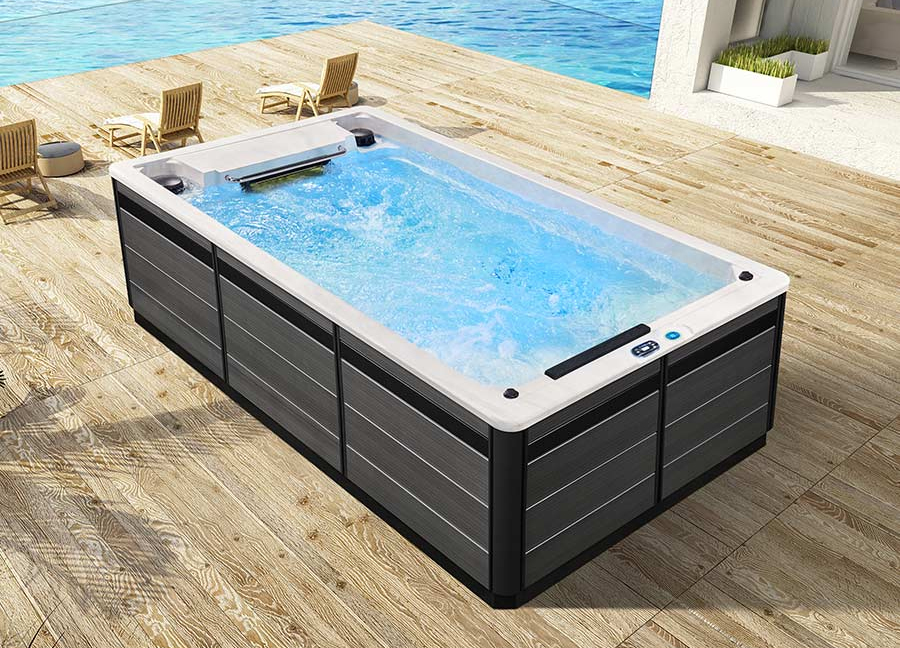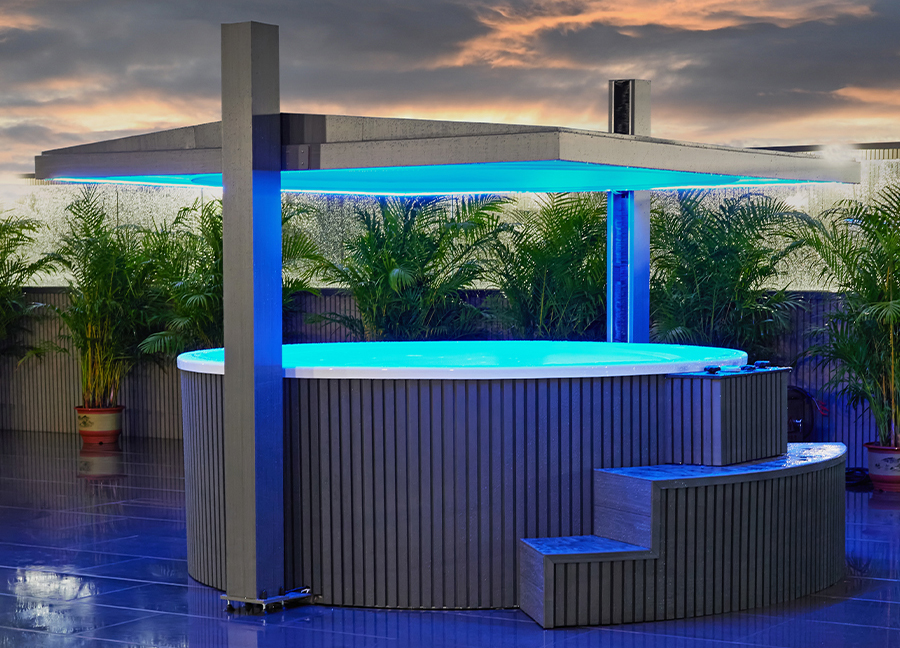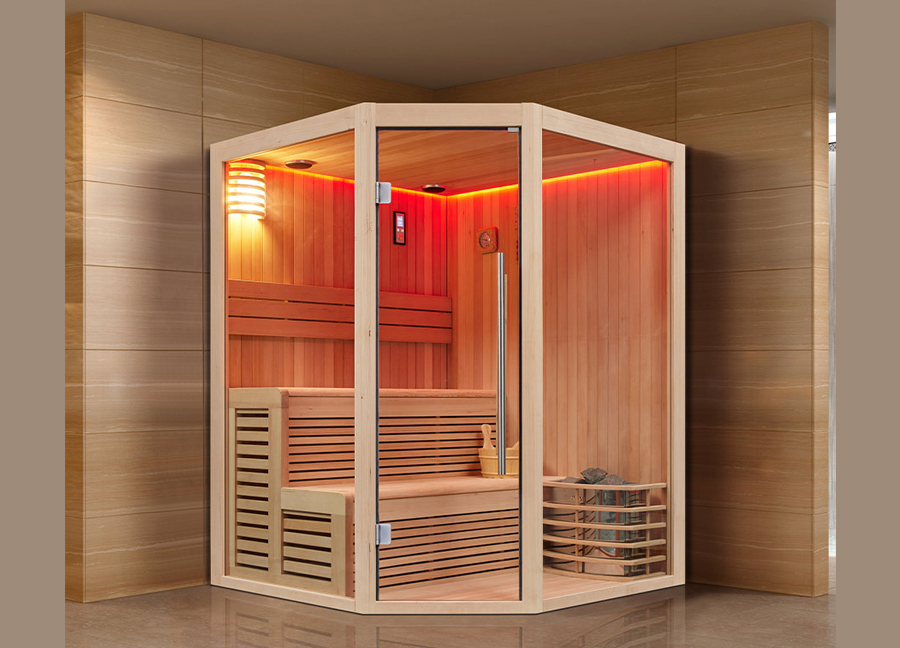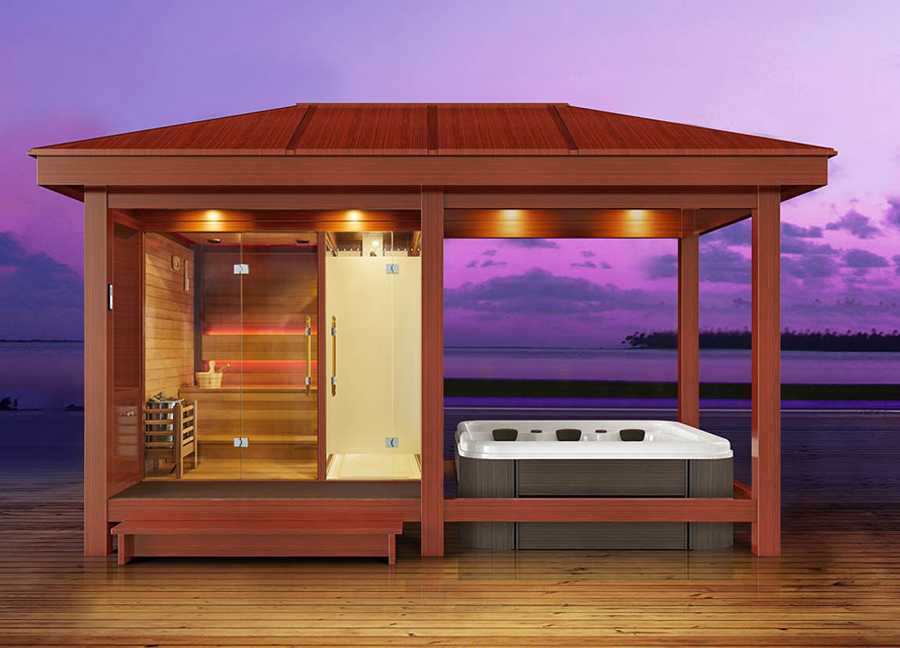A whirlpool spa hot tub is a common treatment device found in modern homes and wellness centers. It combines hot water, bubble massage, and water flow massage techniques, and is widely used to relax muscles, relieve stress, and promote blood circulation.
While the relaxing experience offered by this facility is extremely comfortable, there is a crucial safety issue: never fall asleep in a whirlpool spa hot tub. This is one of the safety guidelines that all users must strictly adhere to when enjoying this facility.
This article will provide a detailed and professional analysis of the issue of "Why shouldn't you fall asleep in a whirlpool spa hot tub?" from multiple perspectives, aiming to raise public awareness and prevent potential dangers.
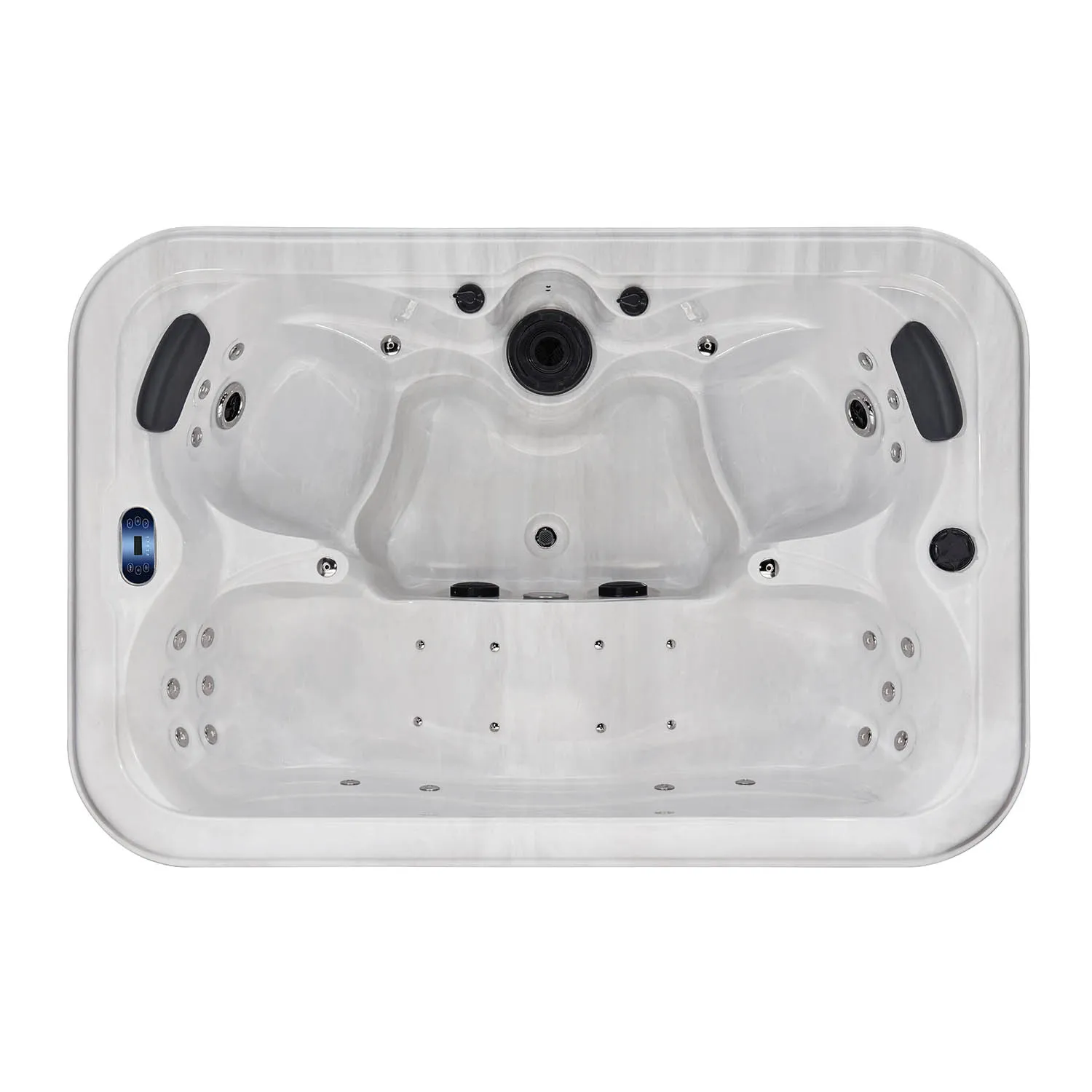
What is a whirlpool spa hot tub?
A whirlpool spa hot tub is a bathtub equipped with a heating system, a water pump, a jet system, and a control module. It is primarily used for hot water bathing and water massage. Compared to traditional bathtubs, it uses water flow and bubble massage to target muscles, joints, and the nervous system, offering excellent relaxation and healing benefits.
A typical structure includes:
• Heating system: Ensures a constant water temperature between 37°C and 40°C;
• Pump/jet system: Creates a water massage to relieve muscle tension;
• Bubble system: Injects air into the water to create a bubble bath;
• Control panel: Adjusts temperature, time, jet intensity, etc.;
• Filtration and disinfection system: Maintains water quality and safety.
Why do you feel sleepy in a whirlpool spa hot tub?
——Many people may ask: "Why do I always feel sleepy in a whirlpool spa hot tub?" This is actually a very natural physiological reaction:
1. Hot water dilates blood vessels
Hot water dilates blood vessels throughout the body, increasing blood flow, boosting metabolism, relaxing muscles, and temporarily reducing oxygen supply to the brain, leading to fatigue and drowsiness.
2. Activates the parasympathetic nervous system
High temperatures activate the parasympathetic nervous system (the nerves responsible for "rest and digest"), causing symptoms such as relaxation, drowsiness, and sleepiness, which are very similar to the initial stages of deep sleep.
3. Water pressure and buoyancy create a "false sense of dormancy" in the body
In water, buoyancy reduces muscle strain, and water pressure relieves limb tension, creating a "floating" sensation. This can easily lead to confusion and even loss of alertness.
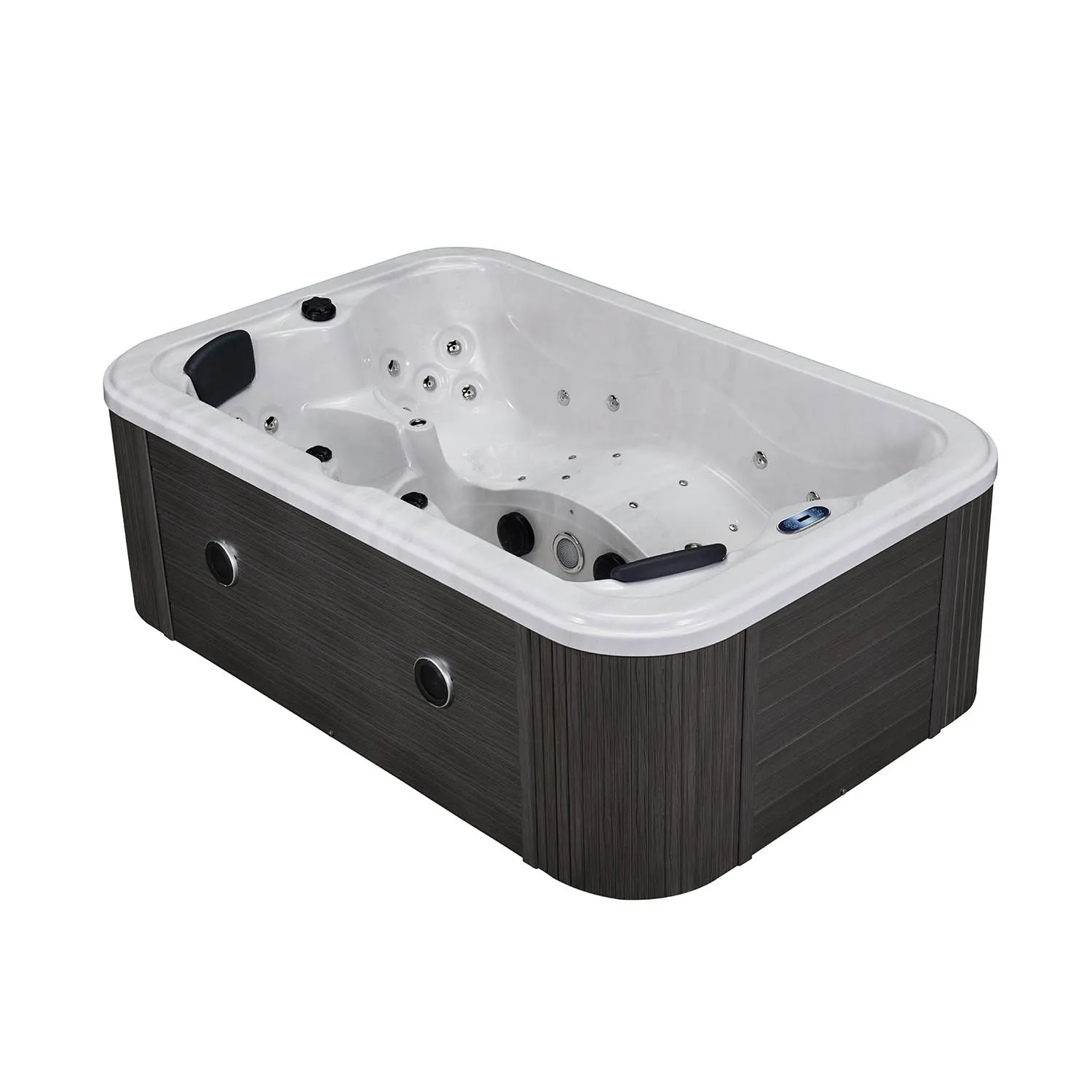
Why shouldn't you fall asleep in a whirlpool spa hot tub?
Falling asleep in a whirlpool spa hot tub may seem like a sign of extreme relaxation, but it actually hides multiple physiological and safety risks.
Safety hazards of falling asleep in a whirlpool spa hot tub:
1. Risk of drowning after loss of consciousness
2. Hyperthermia-induced fainting and hypotension
3. Risk of dehydration and electrolyte imbalance
4. Hot water causes a sluggish central nervous system response
1. Risk of drowning after loss of consciousness
Even if the bathtub water level is low, drowning can occur if the head sinks after falling asleep.
After falling asleep, muscles relax, and the neck's support is weakened, making it very easy for the head to tilt or slip, causing water to enter the mouth or nose. Because sleeping individuals' breathing is restricted and their response to water stimulation is less sensitive, they can easily choke on water or experience persistent hypoxia, ultimately leading to coma or even suffocation.
2. High-Temperature Induced Fainting and Hypotension
The high temperatures of a whirlpool spa hot tub can cause vasodilation and a drop in blood pressure, potentially triggering fainting.
When a person spends a long time in hot water, especially after falling asleep, the body's response to external stimuli is slowed, and vasodilation can exacerbate the drop in blood pressure. Standing up or changing position during this time can easily lead to postural hypotension, or even unconsciousness, resulting in a fall or slip into the water.
3. Risk of Dehydration and Electrolyte Imbalance
The constant high temperatures of a whirlpool spa hot tub induce profuse perspiration. This can lead to significant dehydration, decreased blood volume, and electrolyte imbalances, especially if hydration is not promptly replenished during the bath. If these conditions are not promptly recognized and managed during sleep, they can exacerbate symptoms such as dizziness, nausea, and exhaustion.
4. Hot water causes a sluggish central nervous system response
After falling asleep, brain activity is already reduced and nerve responses are sluggish. A hot water environment further suppresses the central nervous system's excitability, delaying the nerves' response to discomfort signals such as suffocation, hypoxia, and overheating, significantly reducing self-protection capabilities.
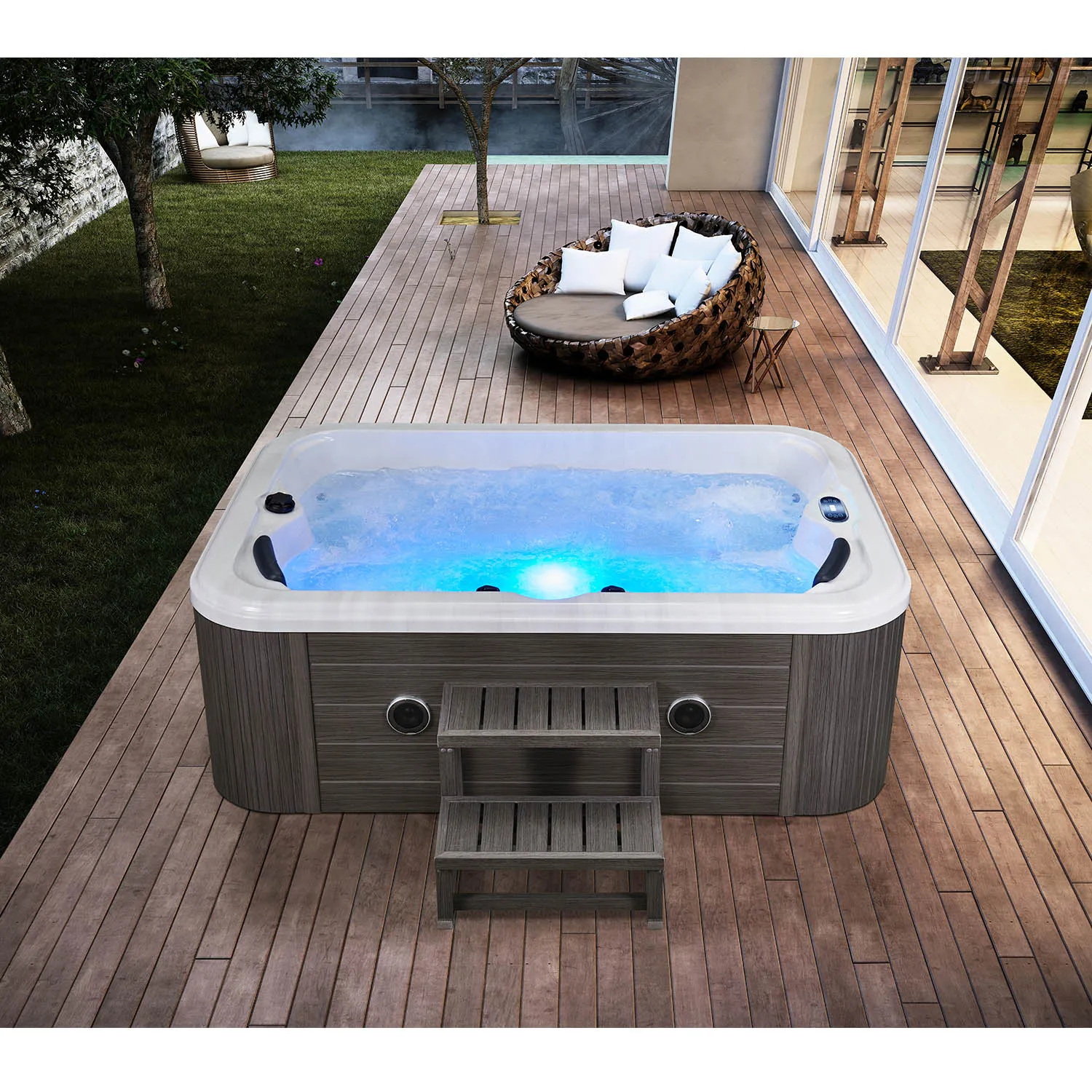
Can you "rest" in a whirlpool spa hot tub?
Many accidents occur not during "deep sleep" but rather during "over-relaxation or napping."
1. The Risk of Confusing "Dozing" with "Rest"
Users often think, "I'm just closing my eyes and resting." However, due to the inherent calming and soothing effects of a whirlpool spa hot tub, coupled with the increased blood circulation from the high temperature, relaxation can easily lead to a light or even deep sleep within a few minutes.
2. Impaired Self-Rescue While Sleeping
Once asleep, even if you sense your body sinking or choking on water, your reaction time will be delayed for several seconds. In water, even a few seconds of hesitation can have serious consequences.
How to use a whirlpool spa hot tub safely and scientifically?
After understanding its dangers, we should learn to use it wisely and rationally to avoid falling asleep in it and maximize its health benefits.
1. Limit usage time
It is recommended that each soaking time be limited to 15-30 minutes, especially shorter when the water temperature is above 40°C. Observe your body's reactions several times during soaking. If you feel dizzy, weak, or overheated, get up immediately, drink water, or apply a cold compress.
2. Avoid using alone
If conditions permit, use a whirlpool spa hot tub with someone accompanying you, especially if you are elderly, pregnant, or have cardiovascular disease. Also, avoid using a whirlpool spa hot tub when you are extremely tired, after drinking alcohol, or after taking medication (especially sedatives).
3. Use a timer and alarm
Most modern whirlpool spa hot tubs have automatic shutoff and timer functions. Set the usage time appropriately so that the jets and heating function automatically stop when the time expires, helping to prevent users from falling asleep during extreme relaxation.
4. Maintain Hydration Balance
Replenish fluids promptly during bathing to avoid dehydration or electrolyte imbalance caused by high temperatures. Drink water before and after use, and monitor physiological signals such as thirst and dizziness.
5. Avoid Late-Night Use
Most people are more likely to feel drowsy late at night, making the risk of falling asleep in a whirlpool spa hot tub extremely high. It is recommended to schedule bathing when awake, such as about an hour after dinner.
Special Groups: Precautions When Using a Whirlpool Spa Hot Tub
1. Elderly
Older adults are more susceptible to accidents in a whirlpool spa hot tub due to decreased heart function, weakened blood pressure regulation, and slower reflexes. Even for short periods of eye relaxation, someone should be present to supervise.
2. Pregnant Women
Extended bathing in high-temperature environments can cause fetal hypoxia. Furthermore, hormonal changes during pregnancy increase vasodilation, making hypotension, dizziness, and even fainting more likely.
3. Children
Children have poor temperature tolerance, immature nervous systems, and limited self-protection abilities. Children should avoid using whirlpools and spa hot tubs alone, even when accompanied by an adult.
4. People with cardiovascular and cerebrovascular diseases
People with chronic conditions such as heart disease, hypertension, and epilepsy should use whirlpools and spa hot tubs with caution or under a doctor's supervision. High-temperature baths increase the stress on the heart and the brain's oxygen demand, making it more difficult to respond to emergencies while asleep.
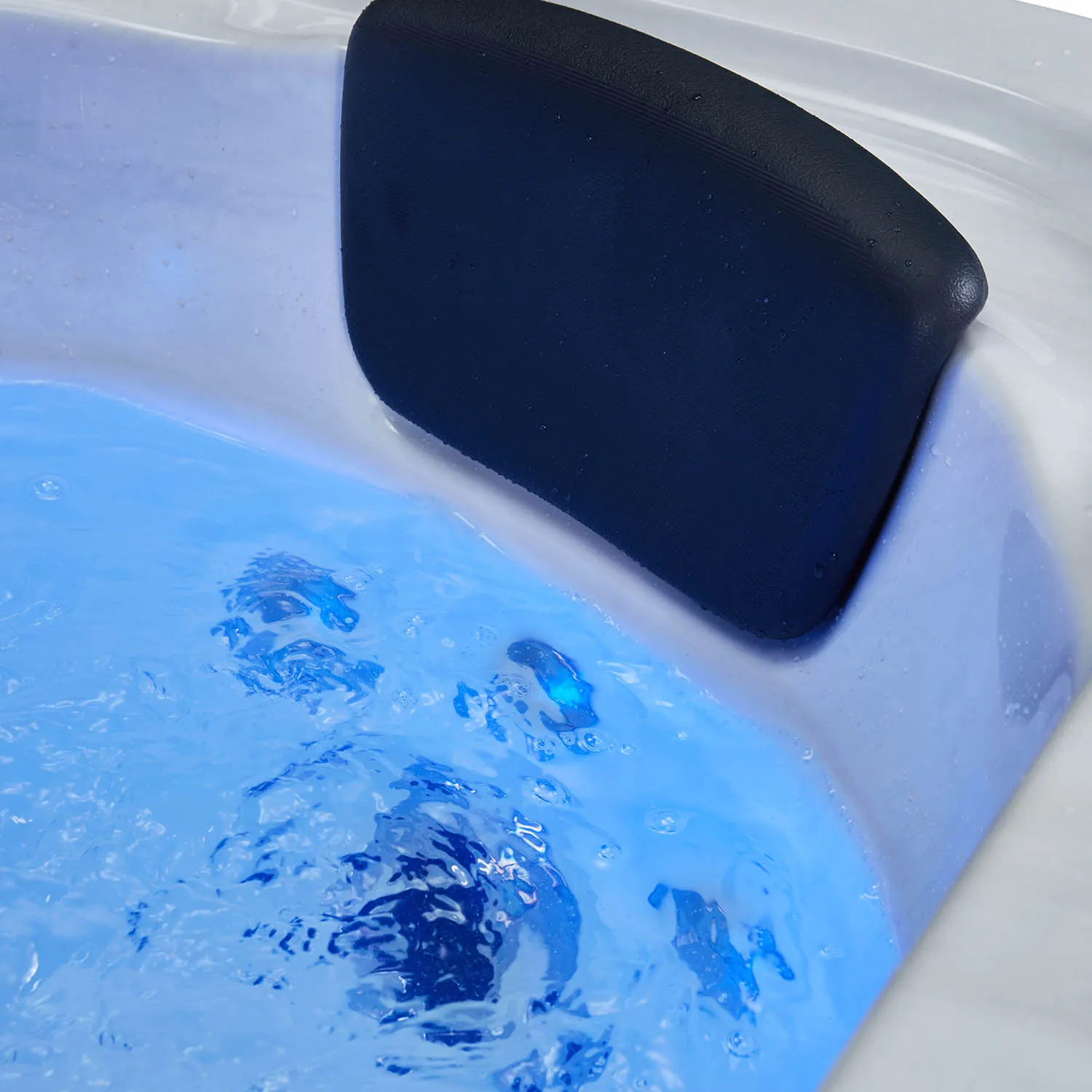
The fundamental reasons for avoiding falling asleep in a whirlpool and spa hot tub
In summary, the reasons for avoiding falling asleep in a whirlpool and spa hot tub can be summarized as follows:
1. Consciousness and muscle control are weakened after falling asleep, making it very easy to drown or sink.
2. Hot water accelerates vasodilation and increases heart rate, and falling asleep amplifies these physiological burdens.
3. High temperatures may cause hypotension, dehydration, and electrolyte imbalances.
4. A sluggish nervous system may prevent a timely response to emergencies during sleep.
5. Special populations are at higher risk and the consequences are more serious.
Therefore, regardless of the size or brand of whirlpool spa hot tub, you must always be vigilant and use it with caution to ensure safety.
Why Choose MEXDA Over Other Spa Suppliers in China?
MEXDA stands out because we are not just a supplier, but a strategic manufacturer partner who delivers value beyond products. With a legacy of quality, innovation, and strong OEM expertise, we help brands grow in their markets. From affordable, factory-direct pricing to high-end engineering, we serve both ends of the market.
Our team offers one-on-one service, flexible customization, and transparent quotes—so whether you’re just starting out or scaling up, MEXDA is the China factory built for your success.

